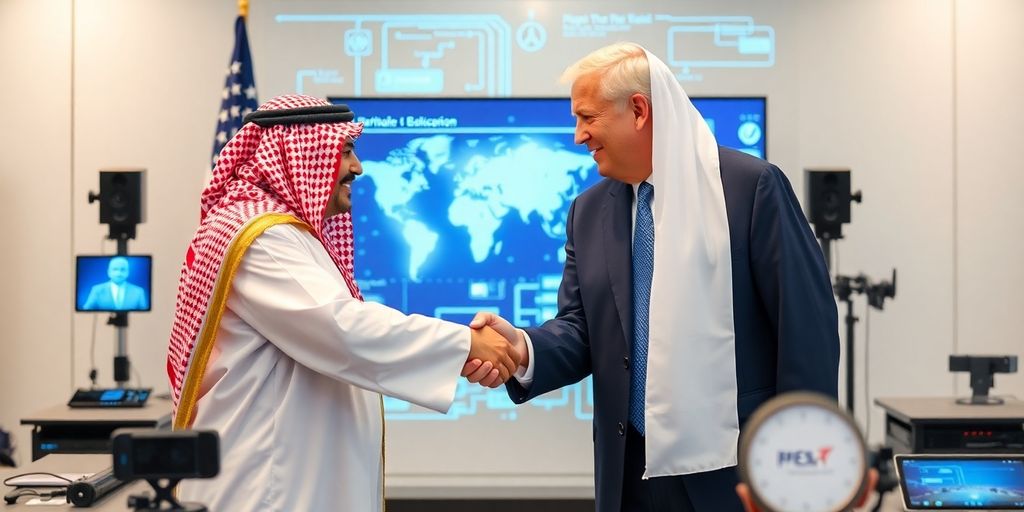The United States and the United Arab Emirates have finalized a significant technology framework agreement aimed at enhancing cooperation in advanced technology sectors. This agreement, expected to be signed during President Donald Trump’s visit to Abu Dhabi, marks a pivotal step in the UAE’s ambition to become a leader in artificial intelligence (AI).
Key Takeaways
- The agreement emphasizes mutual commitments to technology security.
- It allows the UAE to import 500,000 advanced AI chips from Nvidia annually, starting in 2025.
- This deal is seen as a strategic win for the UAE amid U.S. efforts to limit China’s access to advanced technology.
Details of the Agreement
The finalized technology framework agreement is set to be a cornerstone of U.S.-UAE relations, particularly in the realm of technology and innovation. The agreement includes:
- Security Commitments: Both nations will commit to ensuring the security of technology shared between them, addressing concerns over cybersecurity and intellectual property.
- AI Chip Imports: The UAE will be permitted to import a substantial quantity of Nvidia’s cutting-edge AI chips, which are crucial for developing advanced AI applications.
- Strategic Collaboration: This partnership is expected to foster deeper collaboration in various technology sectors, including AI, cybersecurity, and telecommunications.
Implications for the UAE
The UAE has been actively pursuing initiatives to position itself as a global hub for technology and innovation. This agreement is particularly significant as it:
- Enhances Technological Capabilities: Access to advanced AI chips will bolster the UAE’s technological infrastructure, enabling the development of sophisticated AI solutions.
- Strengthens Economic Ties: The agreement is likely to enhance economic cooperation between the U.S. and the UAE, potentially leading to further investments and partnerships in the tech sector.
- Positions UAE as a Global Player: By securing this deal, the UAE aims to elevate its status in the global technology landscape, competing with other nations in AI development.
U.S. Perspective
From the U.S. standpoint, this agreement aligns with its broader strategy to curb China’s influence in the technology sector. The U.S. has been increasingly protective of its advanced technologies, particularly semiconductors, and this deal with the UAE is seen as a way to:
- Limit Chinese Access: By strengthening ties with the UAE, the U.S. can ensure that advanced technologies do not fall into the hands of competitors like China.
- Promote Allied Cooperation: The agreement underscores the importance of alliances in the tech sector, fostering a collaborative environment among U.S. allies.
Conclusion
The finalization of the technology framework agreement between the U.S. and the UAE represents a significant milestone in international technology cooperation. As both nations prepare to sign the agreement, the implications for the tech landscape in the UAE and the broader region are profound, potentially reshaping the future of technology development and collaboration.
Sources
- US and UAE finalise technology framework agreement, source says, Reuters.
- US and UAE Finalise Technology Framework Agreement, Source Says, US News Money.

Founder Dinis Guarda
IntelligentHQ Your New Business Network.
IntelligentHQ is a Business network and an expert source for finance, capital markets and intelligence for thousands of global business professionals, startups, and companies.
We exist at the point of intersection between technology, social media, finance and innovation.
IntelligentHQ leverages innovation and scale of social digital technology, analytics, news, and distribution to create an unparalleled, full digital medium and social business networks spectrum.
IntelligentHQ is working hard, to become a trusted, and indispensable source of business news and analytics, within financial services and its associated supply chains and ecosystems











